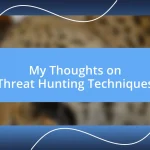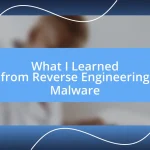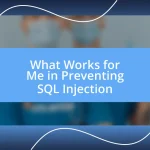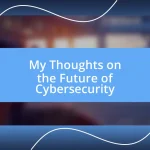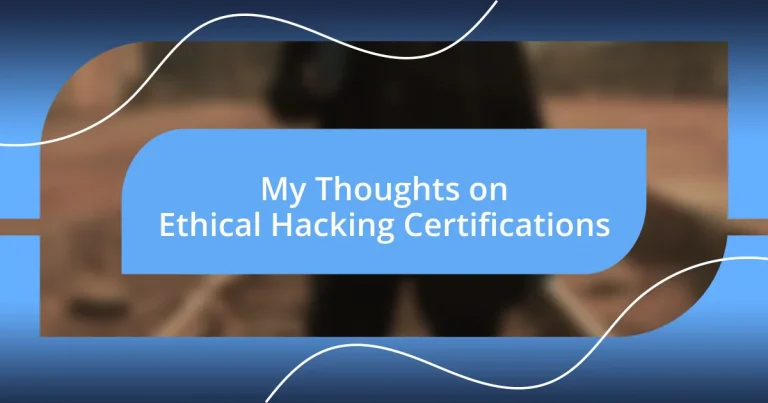Key takeaways:
- Ethical hacking certifications validate skills and open doors to opportunities in cybersecurity, showcasing commitment to ethical practices.
- Certifications enhance credibility, improve practical skills, and ensure adherence to ethical standards, crucial in a trust-centered field.
- The demand for ethical hackers is growing across various industries, with specialization and unique skill sets increasingly influencing career trajectories.
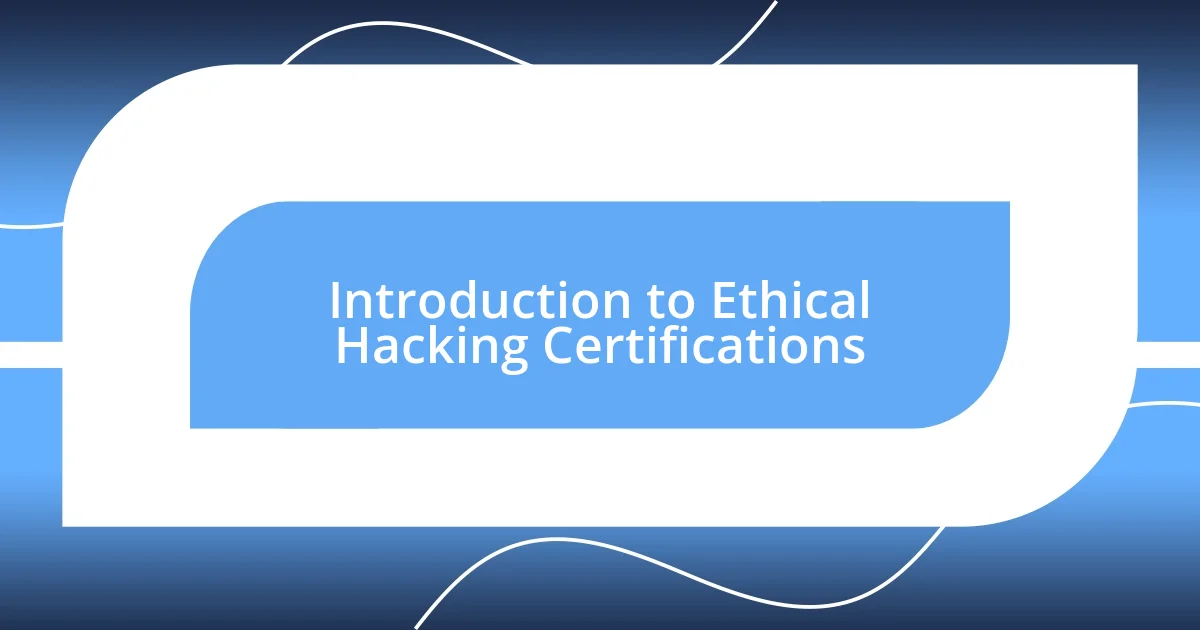
Introduction to Ethical Hacking Certifications
Ethical hacking certifications serve as a formal recognition of one’s skills in cybersecurity. I remember when I first considered pursuing one; it was a pivotal moment that sparked my passion for safeguarding digital environments. It made me wonder—what does it truly mean to be an ethical hacker in today’s tech landscape?
These certifications not only validate your knowledge but also demonstrate your commitment to ethical practices in a field that faces constant scrutiny. I often reflect on how these badges of honor can open doors to amazing opportunities. It’s fascinating to think about how, with the right certification, you can transition from a curious beginner to a sought-after professional in cybersecurity.
Moreover, they cover various areas such as penetration testing, risk assessment, and network security, providing a comprehensive toolkit for aspiring ethical hackers. When I first dove into these subjects, it was like peeling back layers of a complex puzzle. I find it incredibly rewarding to engage with others on this journey, sharing insights on how each certification can shape our approach to tackling cyber threats. What was your initial impression of these certifications? Did it inspire you to delve deeper into the world of ethical hacking?
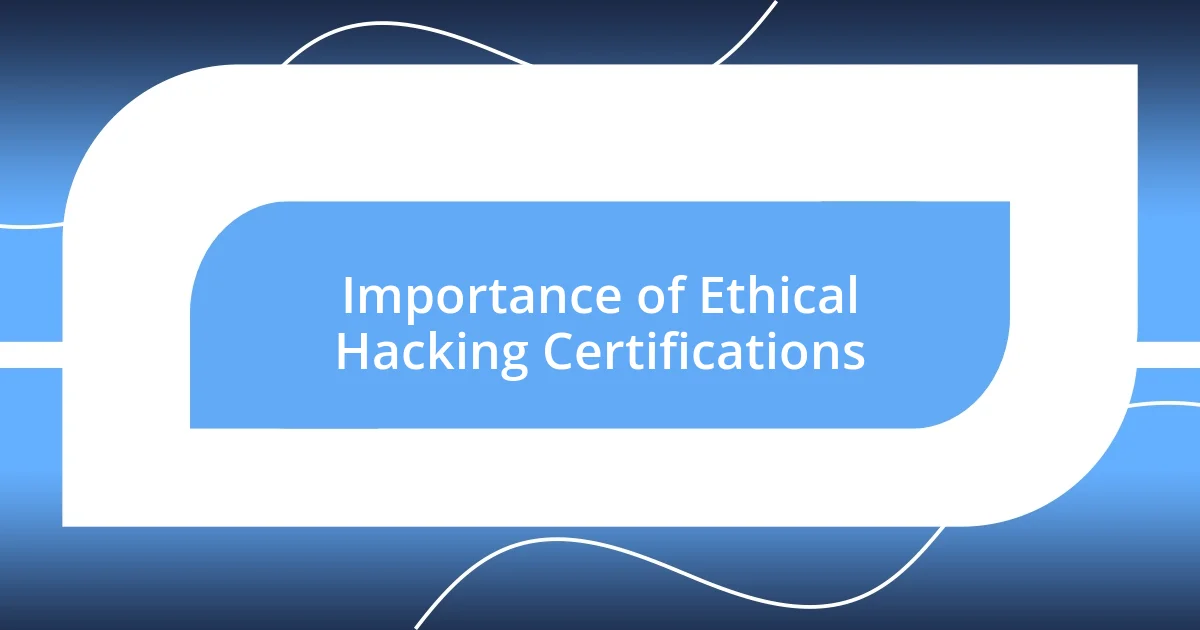
Importance of Ethical Hacking Certifications
Ethical hacking certifications play a critical role in establishing credibility in the cybersecurity field. I recall an instance where I attended a cybersecurity conference; I was amazed by how many professionals proudly displayed their certifications. It struck me that these credentials not only boosted their confidence but also reassured employers of their expertise. This showcases just how much weight these certifications carry in a competitive job market.
One of the fascinating aspects of these certifications is the structured learning paths they offer. When I pursued my first certification, I was pleasantly surprised by the breadth of knowledge I gained in web application security. The journey transformed my understanding and improved my practical skills, enabling me to identify vulnerabilities that I never noticed before. It’s like being handed a set of specialized tools to unlock complex security challenges. This systematic approach not only enhances one’s skills but also fosters a culture of continuous learning and adaptation in an ever-changing landscape.
Additionally, these certifications ensure that professionals adhere to ethical standards, which is paramount in a field where trust is essential. I sometimes reflect on how comforting it is as a potential employer to know that those I hire have undergone rigorous training and ethical evaluations. It aligns with my belief that integrity is as important as technical ability, shaping a better environment for everyone involved in cybersecurity.
| Certification | Importance |
|---|---|
| CEH (Certified Ethical Hacker) | Validates penetration testing skills and ethical approaches. |
| OSCP (Offensive Security Certified Professional) | Proves hands-on experience in conducting real-world attack simulations. |
| CISSP (Certified Information Systems Security Professional) | Demonstrates a broad understanding of information security principles. |
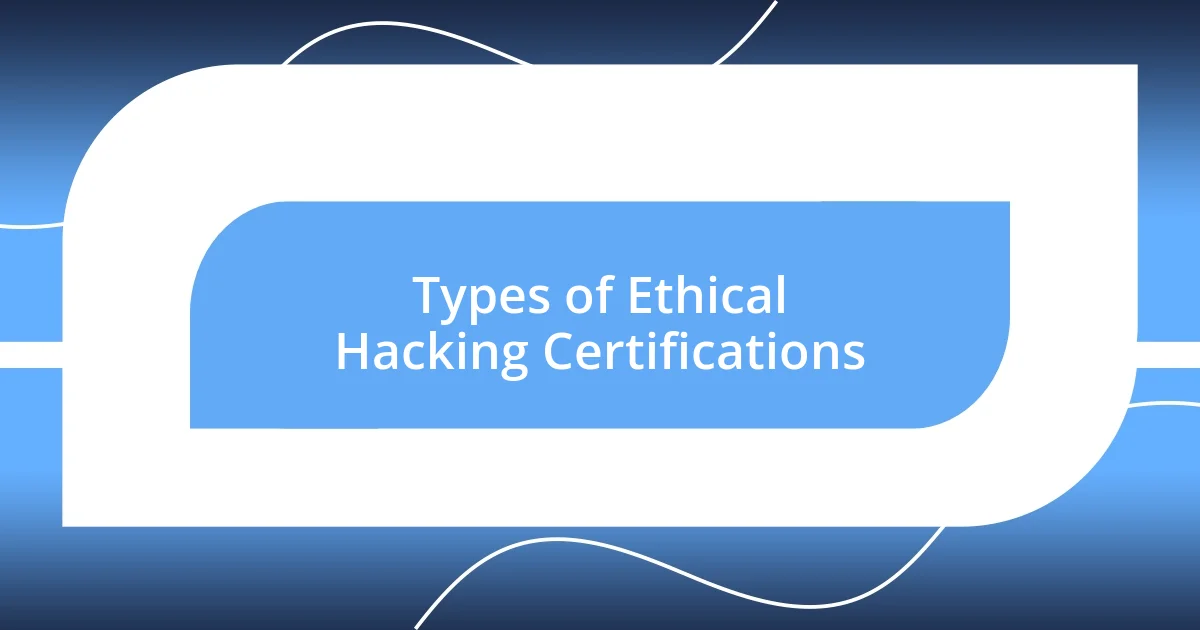
Types of Ethical Hacking Certifications
When exploring the types of ethical hacking certifications available today, it’s exciting to see the range that suits various interests and skill levels. Each certification has its own unique focus, allowing individuals to specialize in certain aspects of cybersecurity. I remember feeling a rush of exhilaration when I discovered the depth of options out there. It reminded me that the path to becoming an ethical hacker isn’t one-size-fits-all; it’s about finding what resonates with you.
Here’s a quick overview of some key certifications:
- CEH (Certified Ethical Hacker): Focuses on penetration testing skills and ethical practices.
- OSCP (Offensive Security Certified Professional): Centers on hands-on experience with real-world attack simulations.
- CISSP (Certified Information Systems Security Professional): Covers a broad spectrum of information security principles.
- CISA (Certified Information Systems Auditor): Emphasizes auditing skills for IT systems and security.
- CompTIA PenTest+: An entry-level certification for those looking to validate their penetration testing expertise.
Each of these certifications offers a different journey and skill set. I still recall my initial confusion about choosing the right certification until I spoke with a mentor who helped me align my interests with my career goals. Their insights were invaluable, much like a compass guiding me through uncharted territory. This kind of personalized guidance can be a game-changer in navigating the various types of ethical hacking certifications.
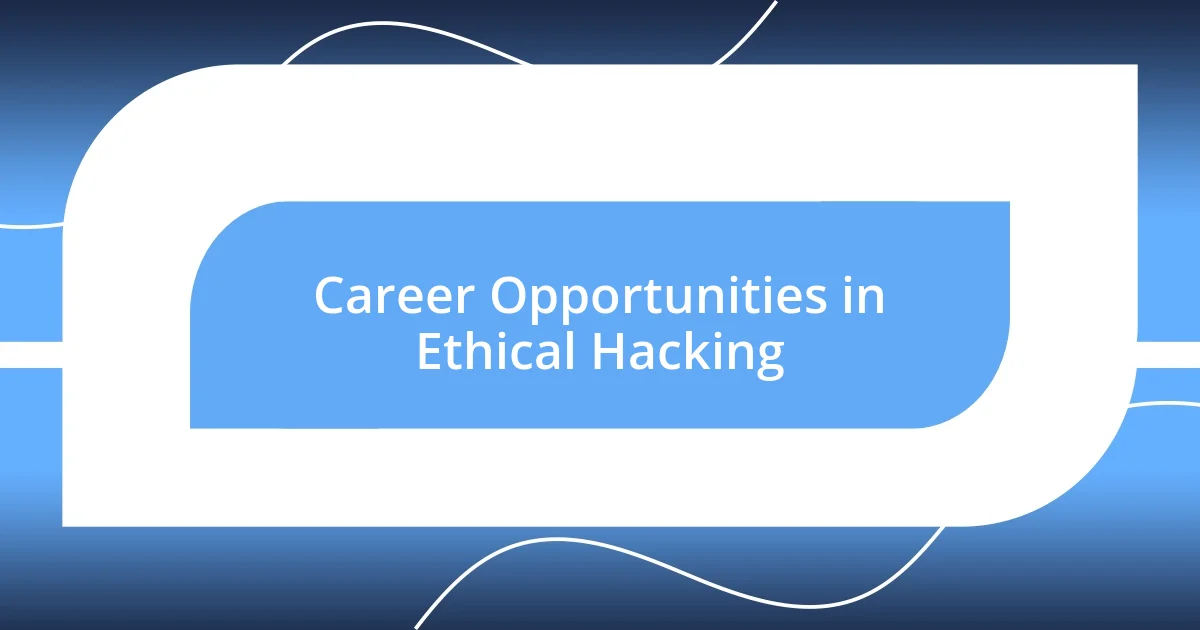
Career Opportunities in Ethical Hacking
The landscape for career opportunities in ethical hacking is both exciting and evolving rapidly. I often think about my first job interview in the cybersecurity field and how it felt like stepping into a whole new world. Ethical hackers are not just sought after; they are essential protectors of organizations’ digital landscapes. With the increasing sophistication of cyber threats, companies now hiring ethical hackers are acknowledging that these roles are pivotal in safeguarding their data, leading to diverse job openings, from penetration testers to security analysts.
When I talk to peers in the industry, it’s clear that specialization can really enhance one’s career trajectory. I remember chatting with a colleague who focused on mobile security, and it made me realize how niche roles can influence one’s career path. It’s not just about having the right certifications; it’s about carving a unique niche that aligns with personal passions. Potential employers are looking for expertise in specific areas of ethical hacking, and I have seen many successful professionals thrive by honing in on what they love, whether it’s vulnerability assessments or incident response.
Moreover, the demand for ethical hackers spans multiple industries, from finance to healthcare and even government sectors. Reflecting on the shift I witnessed over the years, it feels great knowing that ethical hackers have become indispensable to corporate strategy. Employers are tailoring roles and programs around these specialists, often creating roles that didn’t exist before. Can you imagine the possibilities? A career in ethical hacking can take you into diverse environments, each presenting unique challenges and opportunities to learn and grow.

